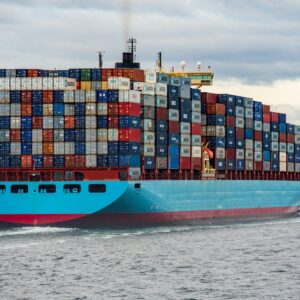Trinidad and Tobago is highlighting the importance of using many different sources of energy instead of having the government pick a winner. Over time, that will allow the most efficient sources to grow in a competitive market.
US, UK Lead Pledge to Triple Nuclear Power by 2050 at COP28
"The declaration is the latest sign of shifting sentiment toward nuclear power, which doesn’t produce carbon dioxide emissions, but has often been criticized over the waste it generates, the cost of building plants and potential security issues. Support has gained traction especially as clean back-up for renewable energy sources such as wind and solar. The countries will also commit to new technologies, such as small modular reactors."
Global trade gets a bad rap. But we can’t stop climate change without it.
"Most importantly, trade, in the climate change era, allows economies with relatively clean sources of energy to specialize in energy-intensive goods and services. It is essential both to shift the footprint of global production to where things can be made at the least cost to the environment and to allow the dirtier producers in the developing world to acquire technologies — mostly originated in richer nations — that will enable them to reduce their emissions, too."
Economic and Environmental Lessons from Switzerland
The way to unlock the power of society and the private sector is by giving people the freedom to innovate.
Voluntary Markets, Increased Verification Offer a Better Pathway for Brazil’s Carbon Market
Voluntary carbon markets can accomplish the economic and environmental goals that policymakers and consumers want at a more competitive price.
This Farm In Kenya Will Host the World’s First Ever Green Hydrogen-to-Fertilizer Plant
Talus offers a sustainable, low-cost ammonia alternative that will save farmers money and help the agricultural industry reduce its emissions.
The Hidden Costs of Green Protectionism
Opening up trade, reducing inefficient regulations, and promoting pro-growth tax policies will allow the market to respond to consumer demands for cleaner technologies without leaving the developing world behind.
Market-Based Conservation is Saving Southern White Rhinos
Market-based conservation efforts are showing the power that incentives and private management provide in protecting endangered and threatened species.
Hamas and the Folly of Energy Dependence
Blocking Access to American Energy Resources Invites Aggression
Economic Lessons from the Heart of South America: Paraguay
As the heart of South America, Paraguay is leading the way for other developing nations to follow.









